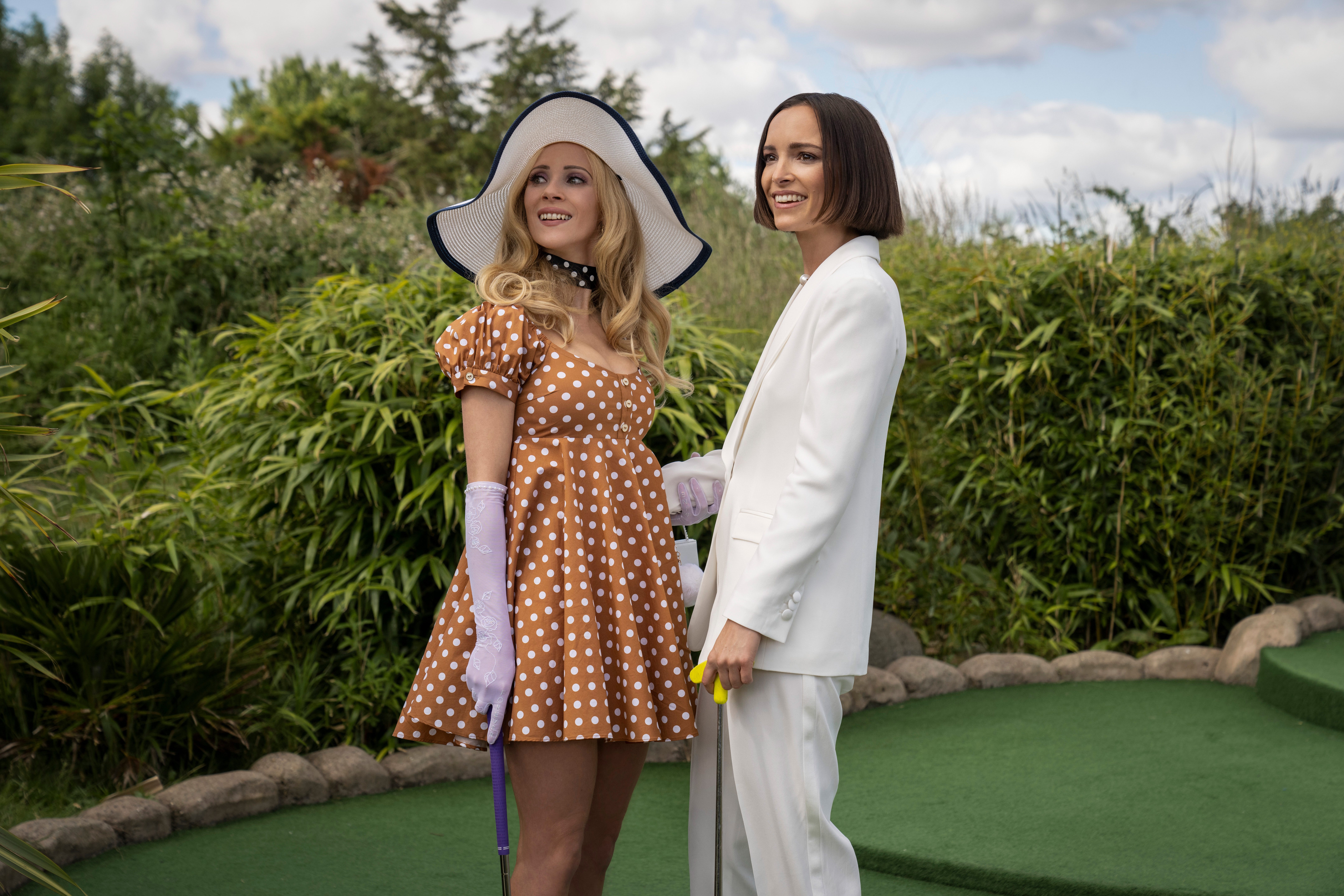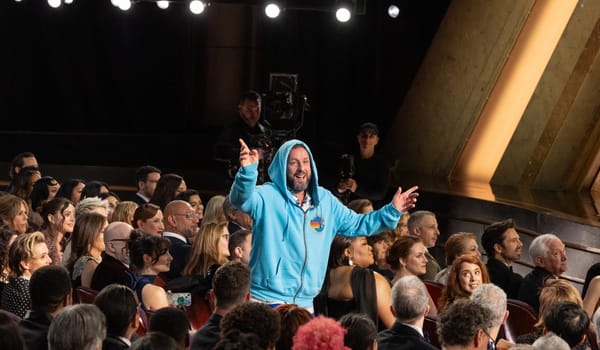Does anyone at Ted Lasso know how VC funding works?
Please, let me Google that for you

Plenty of digital ink has already been spilled about Ted Lasso’s aimless third season, which, perhaps mercifully, seems poised to be the final outing for Apple TV’s breakout series. Critiques vary—stories drag, we’ve lost the charm of the ensemble, episodes are overstuffed. But no one is talking about the thing that bothers me most: nobody at Ted Lasso thought to Google what a venture capitalist does before committing Keeley’s storyline to film.
Before we get too deep in the weeds here, let me just make it clear that I’m not one of those viewers who demands fealty to “reality.” I don’t make or watch or share YouTube videos with titles like “Everything WRONG with Ted Lasso in 23 minutes” filled with so-called-flaws like “in this scene Higgins is allegedly drinking black tea but the liquid is very light, suggesting a green or even herbal tea.” If anything, I’m more tolerant than the average Joe as long it makes sense dramaturgically.
Unfortunately, in Ted Lasso’s case, the stories aren’t really clicking, and my patience wore thin in one very specific area: Keeley’s PR firm. Quick recap: at the end of season 2, a venture capital firm offered to fund an independent PR company centered around Keeley Jones. Keeley, one of the resident girl bosses of the Ted Lasso universe, jumps at the opportunity to strike out on her own. While it stretches credulity that a VC would fund a small, boutique PR firm—VCs typically fund tech companies where they can expect an outsized return on their cash—it is at least a potentially interesting storyline that pushes Keeley out of her comfort zone.
But the Ted Lasso team doesn’t seem quite sure what to do with that setup in season 3, relying on unlikely scenarios to create easy drama instead of digging deeper into the ramifications of striking out on your own. For starters, we learn that not only has the VC provided funding to kickstart Keeley’s company, but outfitted her with an office and employees—including a CFO whose stated goal is to protect the investors’ money. Keeley enters into a relationship with Jack Danvers, her main funder, which ends badly. Bad enough that in the latest episode, the VC firm decides to pull their funding, pack up the furniture, and send their employees back to HQ.

This is, simply, not how VC money works. Jack’s firm would’ve bought shares in Keeley’s company, KJPR, in exchange for money. That money, once in KJPR’s business account, is entirely at Keeley’s disposal. Sure, if Keeley said fuck all, withdrew the money, and bought a one-way plane ticket to a country with no extradition treaty with the UK, then Jack’s firm would’ve had reason to sue for the return of their funds. But they wouldn’t be able to send notice on a Tuesday and have the whole business shut down on Friday.
It would also be highly unusual for the firm’s employees to be contracting for KJPR in the first place. Who’s paying them, exactly? If the VC can tell them to pack up and leave at a moment’s notice, presumably they’re still on the firm’s payroll. Meanwhile, KJPR has clients—Keeley’s former employer Richmond FC, for one, as well as the VC’s other big investment, the (fictional) dating app Bantr—that I assume pay some sort of monthly retainer. So what’s the VC funding even paying for?
The actress who plays Jack said in an interview that she researched the venture capital world in order to get into Jack’s privileged rich person mindset. Apparently, she kept all that research to herself. No one else on the Ted Lasso team thought to use Google, watch Silicon Valley, or read a newspaper during the production—her knowledge could’ve been game-changing!
My personal theory is that someone saw “VC fund,” confused it with a trust fund, and wrote a story about Keeley getting her money spigot turned off because of personal drama. And I get it—maybe that’s more fun than writing about the intricacies of contracts and business bank accounts (though the folks at Succession would probably disagree).
But on top of everything else this season, it just feels like the Ted Lasso team is not even talking to each other before putting these storylines together. Characters come and go, stories start and then are dropped unceremoniously, and nothing seems to be building toward any sort of conclusion. Episodes are ballooning in length, but not because they have anything to say. Keeley’s wild VC-funded ride is just one symptom of the show’s disjointed narrative. Ted Lasso may yet end with Richmond winning the Premier League and Ted leaving at the top of his game. Unfortunately, the same can’t be said for the show.




